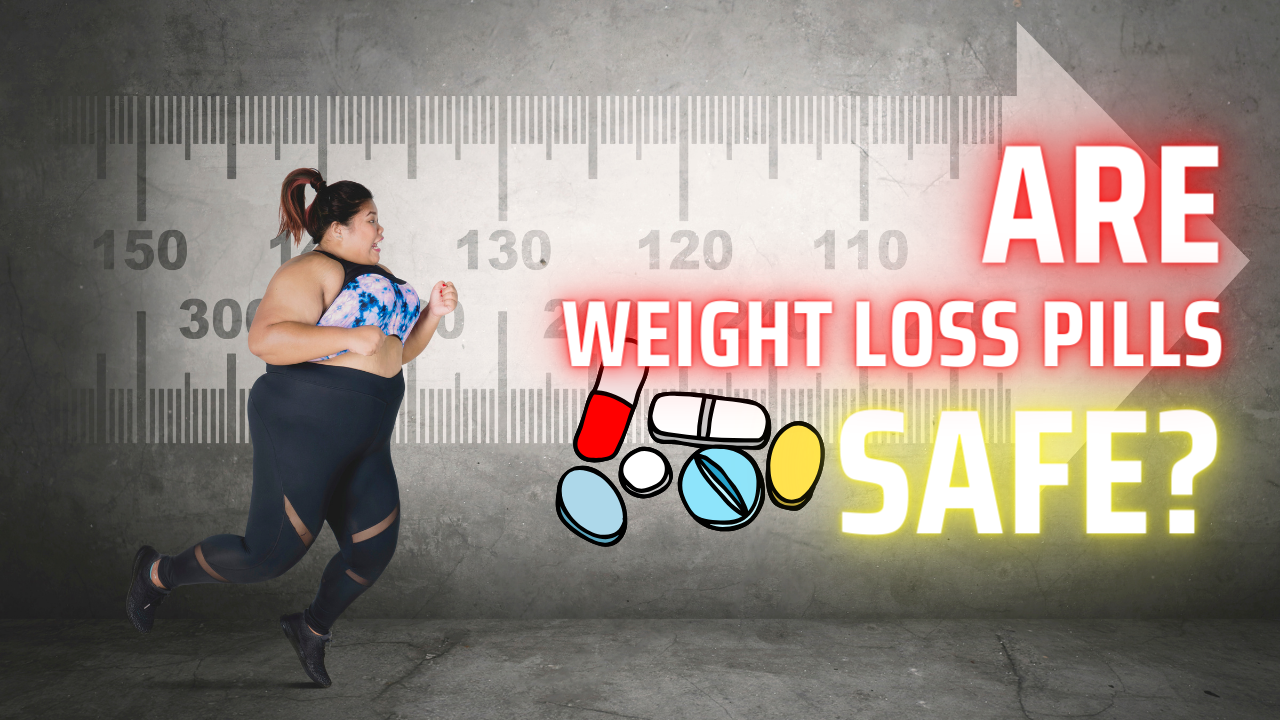Are Weight Loss Pills Safe?

The quest for effective weight loss solutions has led many individuals to explore a variety of options, including weight loss pills. In this blog, we delve into the safety aspects of weight loss pills, shedding light on the potential risks and benefits associated with these supplements. Whether you're considering incorporating weight loss pills into your regimen or simply curious about their safety, this comprehensive guide provides the information you need to make informed decisions on your journey to a healthier you.
1: The Appeal of Weight Loss Pills
1.1 The Promise of Quick Fixes
Weight loss pills often allure with promises of rapid and effortless weight loss. This section explores the appeal of quick fixes and the desire for immediate results that often drive individuals to consider these supplements. Understanding the psychology behind this appeal sets the stage for a nuanced discussion on safety.
1.2 Types of Weight Loss Pills
There is a diverse array of weight loss pills on the market, each claiming unique benefits. From appetite suppressants to fat burners and metabolism boosters, this segment introduces the various types of weight loss pills and the mechanisms they claim to facilitate weight loss.
1.3 The Role of Regulation and Approval
Regulatory oversight plays a crucial role in ensuring the safety of weight loss pills. This section provides insights into the approval processes that these supplements undergo, examining the role of organizations like the FDA (Food and Drug Administration) and the significance of adhering to established safety standards.
2: The Safety Concern
2.1 Potential Side Effects
Weight loss pills, like any supplement, can have side effects. This segment explores the potential adverse effects associated with common ingredients in these pills. From digestive issues to cardiovascular concerns, understanding the range of side effects enables individuals to weigh the risks against potential benefits.
2.2 Interactions with Medications and Health Conditions
Individuals often have underlying health conditions or take medications for various reasons. This section discusses the importance of considering potential interactions between weight loss pills and existing medications or health conditions. Seeking professional advice before incorporating these supplements is emphasized to mitigate risks.
2.3 Dependency and Tolerance
Another safety consideration is the potential for dependency and tolerance. Exploring the mechanisms through which the body may adapt to weight loss pills over time and the risks associated with dependence sets the stage for a balanced discussion on the sustainability of these supplements as long-term solutions.
3: Research and Efficacy
3.1 Examining Scientific Evidence
Scientific research forms the backbone of understanding the efficacy and safety of weight loss pills. This section delves into existing studies on popular ingredients, exploring the evidence supporting their effectiveness and safety. Distinguishing between well-researched compounds and those lacking robust scientific support is crucial for informed decision-making.
3.2 Realistic Expectations
Setting realistic expectations is vital when considering weight loss pills. This segment emphasizes the importance of understanding that these supplements are not magic bullets and should be complemented by lifestyle changes. Managing expectations ensures individuals approach weight loss with a holistic perspective and a focus on sustainable, long-term results.
3.3 The Placebo Effect
The placebo effect can influence perceptions of weight loss pill efficacy. This section explores the psychological impact of belief in the effectiveness of a supplement and how it may contribute to perceived benefits. Recognizing the role of psychological factors in the weight loss journey enhances a nuanced understanding of these supplements.
4: Making Informed Decisions
4.1 Consulting Healthcare Professionals
Before incorporating weight loss pills into your routine, seeking guidance from healthcare professionals is paramount. This section discusses the importance of consulting with physicians, nutritionists, or dietitians to assess individual health status, potential risks, and the compatibility of these supplements with existing health conditions.
4.2 Reading Labels and Understanding Ingredients
Empowering consumers to make informed choices involves understanding product labels and recognizing key ingredients. This segment provides tips on deciphering labels, identifying potentially harmful substances, and making educated decisions when selecting weight loss pills.
4.3 Lifestyle Changes as the Foundation
Weight loss pills should be viewed as supplementary to, not a replacement for, healthy lifestyle changes. This section reiterates the significance of incorporating balanced nutrition, regular physical activity, and behavioral modifications as the foundation for sustainable weight loss. Weight loss pills, if deemed safe, can complement these lifestyle changes.
The safety of weight loss pills hinges on informed decision-making. Recognizing the potential risks, understanding scientific evidence, and consulting healthcare professionals are crucial steps in navigating the landscape of weight loss supplements. While weight loss pills may offer some benefits, their safety is contingent on individual health status, proper usage, and a holistic approach to overall well-being. By arming yourself with knowledge and approaching these supplements with caution, you can make choices that align with your health goals and prioritize long-term success.


